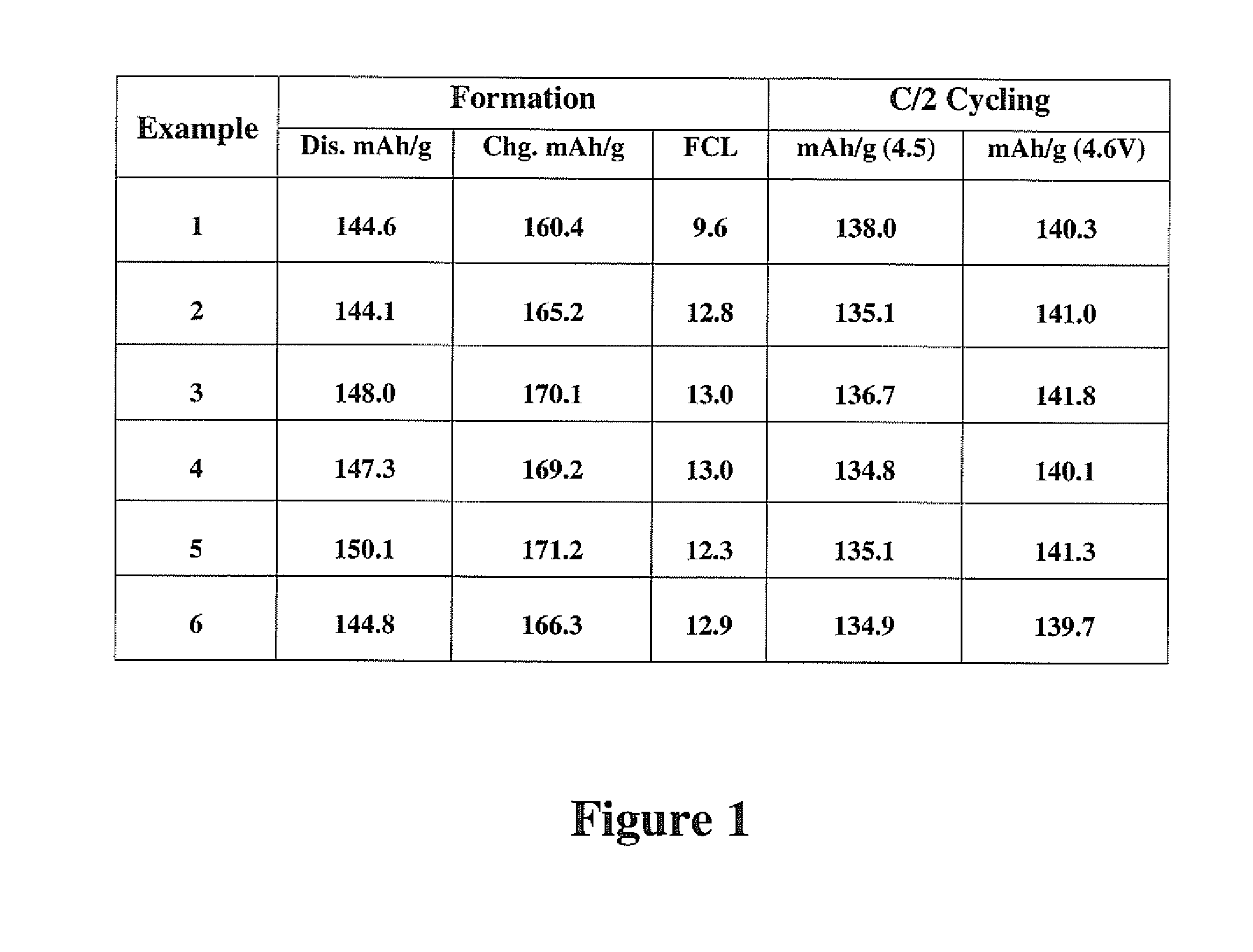Synthesis of cathode active materials
a cathode active material and active material technology, applied in the direction of vanadium compounds, lithium compounds, cell components, etc., can solve the problem of not always economical production
- Summary
- Abstract
- Description
- Claims
- Application Information
AI Technical Summary
Benefits of technology
Problems solved by technology
Method used
Image
Examples
example 1
Preparation of LVP by Wet Mixing
[0050]LiOH 2H2O (250 g), V2O5 (357 g) H3PO4 (85%; 686 g), Super P (47 g), PEG 1450 (60 g) and H2O (749+g) were mixed between 5 and 10 hours to form a slurry. The slurry was spray dried (250° C. in / 120° C. out). The resulting precursor composition was calcined for 8 hours at 900° C. to produce lithium vanadium phosphate.
example 2
Preparation of LVP by Wet Mixing
[0051]LiOH 2H2O (250 g), V2O5(357 g) H3PO4 (85%; 686 g), Super P (47 g), PEG 1450 (60 g) and H2O (749+g) were mixed between 5 and 10 hours to form a slurry. The slurry was spray dried (250° C. in / 120° C. out) and pelletized. The resulting precursor composition was calcined for 8 hours at 900° C. to produce lithium vanadium phosphate.
example 3
Preparation of LVP by Wet Mixing
[0052]LiOH 2H2O (250 g), V2O5 (357 g) H3PO4 (85%; 686 g), Super P (47 g), PEG 1450 (60 g) and H2O (749+g) were mixed between 5 and 10 hours to form a slurry. The slurry was spray dried (250° C. in / 120° C. out). The resulting precursor composition was ball milled for 3 hours and then calcined for 8 hours at 900° C. to produce lithium vanadium phosphate.
PUM
| Property | Measurement | Unit |
|---|---|---|
| Temperature | aaaaa | aaaaa |
Abstract
Description
Claims
Application Information
 Login to View More
Login to View More - R&D
- Intellectual Property
- Life Sciences
- Materials
- Tech Scout
- Unparalleled Data Quality
- Higher Quality Content
- 60% Fewer Hallucinations
Browse by: Latest US Patents, China's latest patents, Technical Efficacy Thesaurus, Application Domain, Technology Topic, Popular Technical Reports.
© 2025 PatSnap. All rights reserved.Legal|Privacy policy|Modern Slavery Act Transparency Statement|Sitemap|About US| Contact US: help@patsnap.com

